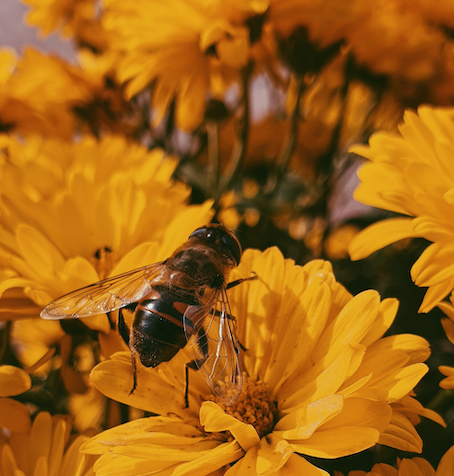The gatekeepers of our planet: the bees
In October 2017, the United Nations General Assembly decided to make May 20 World Bee Day. The purpose of this day would be to remember and celebrate the enormous importance that pollinating insects have for our very lives on the planet, but also to raise awareness among governments and the public about the danger that so many bee colonies are facing.
Increasing pollution and intensive agriculture have destructive effects on biodiversity, and the consequence is that many animal species are endangered, including bees.
Did you know?

On the continuous work of pollinator insects depends the reproduction of many plant species. Even the fruits and vegetables that we find on our table daily we owe to bees. To celebrate them on this day, below we want to share some interesting facts about their extraordinary social organization.
- That's right, bees are very social animals, living in highly hierarchical organizations in which each has a specific role. To communicate with each other they use a sophisticated language based on pheromones and precise shapes and dances, through which they can tell each other when they find pollen and nectar, and at what distance.
- The queen bee governs the entire hive, is normally the mother of all bees in a colony, and develops from a larva selected by worker bees and then fed a "special diet" of royal jelly. A queen bee lives on average for about two years, after which time it is replaced by the same process.
- A hive is made up of sections called combs, and each honeycomb consists of small hexagonal cells, which are a kind of reserve to store honey and pollen, but also as an incubator for small larvae. These cells are built with beeswax, and the hexagonal shape depends on the fact that bees have realized that it is the optimal solution to make the most of all the resources and space.
- Bee society is a true matriarchy, the male bee is called the drone, unlike worker bees, he does not produce honey, and his only purpose within the colony is to fertilize the queen bee.
- Worker bees are female bees that perform an enormous amount of tasks both inside the hive and outside. They build cells, keep the hive clean, feed the queen, collect water, nectar, and pollen, produce wax, and are the guardians of the colony.
World Bee Day also aims to promote sustainable agriculture that respects the landscape and protects biodiversity, so as to facilitate the survival on the planet of the precious pollinating insects, and consequently our own.
Taking care of the ecosystem means loving the planet that hosts us, and which we often mistakenly think of as our own. It is not only an act of respect but also a fundamental stance for our future.
